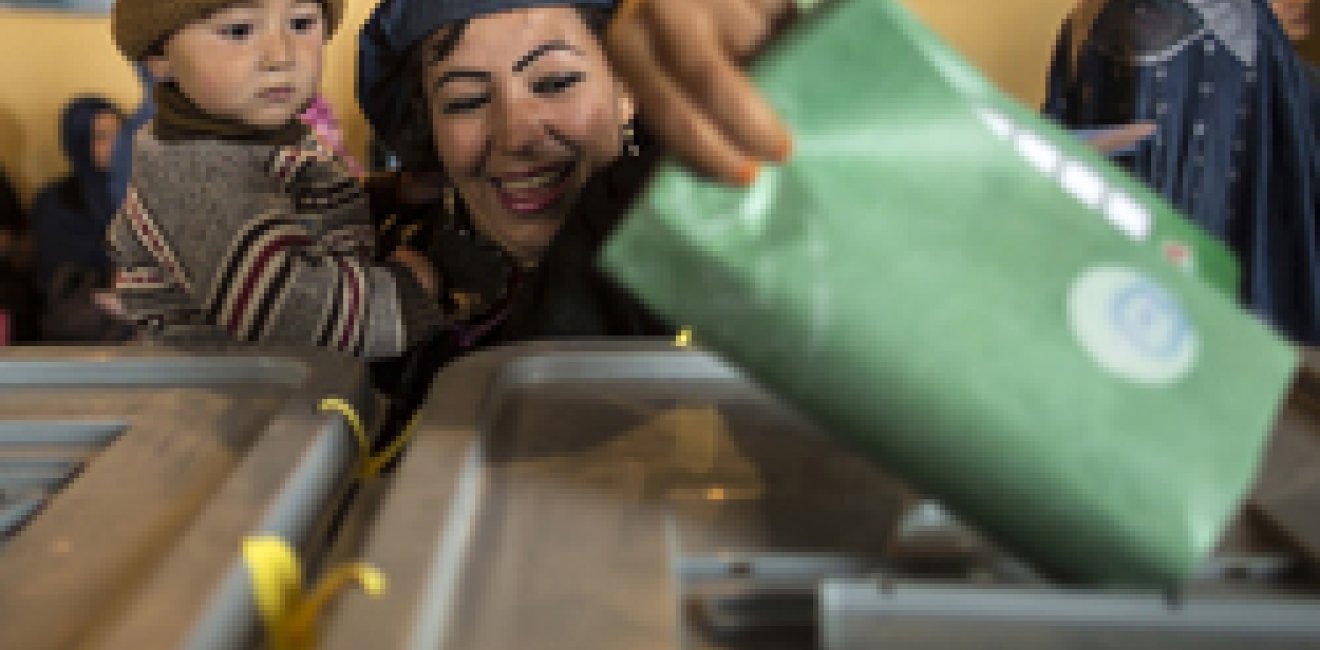It was a very pleasant and peaceful surprise.
After weeks of relentless attacks by the Taliban -- including assaults on five-star hotels, foreign journalists, and posh restaurants -- many feared that Saturday's Afghan election would be a very bloody one. After all, the militant group had vowed to "use all force at its disposal" to disrupt the election, which it referred to as a "sham."
And yet the 7 million people who turned out to vote -- nearly 60 percent of Afghanistan's electorate -- largely escaped harm. It was by all measures an extraordinary peaceful election, with only isolated pockets of violence (mainly in rural areas).
So what happened?
One might contend that credit is due to Afghan officials, who deployed 350,000 security forces to protect the voting public. One could argue that the Taliban was intimidated by such a strong show of force, and decided to hold its fire. Additionally, authorities shut down hundreds of polling stations in areas deemed particularly dangerous -- likely neutralizing some of the greatest threats of violence.
Yet this isn't a completely satisfactory explanation. The Taliban is not deterred by strong shows of force, and it is quite capable of launching attacks wherever and whenever it pleases. Most of its recent assaults have targeted some of the most well-secured and supposedly invulnerable facilities in Afghanistan -- from the Interior Ministry to the luxurious Serena Hotel in Kabul.
Here's a more likely explanation for why there wasn't much election-day violence: The Taliban held back so as not to delegitimize itself in the eyes of the Afghan people.
Wait, you might say. The Taliban actually cares about things like legitimacy?
Absolutely.
Consider that the Taliban has been quite concerned about its image in recent years -- and has even sought to project a more gentle face. The Taliban has often expressed anger about the overly barbaric and even "unethical" tactics used across the border by the Pakistani Taliban. It has even vowed support for polio vaccination campaigns (the Pakistan Taliban, by contrast, often kills polio workers), and even called for fewer civilian casualties in its operations.
Of course, some of the Taliban's latest attacks -- including the one on the Serena Hotel, which involved children being shot in a restaurant at close range -- make such image-enhancement efforts laughable, to say the least.
Still, recall what a Taliban spokesman told a New York Times reporter after the Serena attack. "There is no acceptable way to defend the deaths of these children, and we regret their deaths," he said. Rare is the occasion when any militant spokesperson offers any sort of contrition.
Consider as well that Afghanistan's outgoing government is extremely unpopular. One of the reasons why the Taliban insurgency has survived (if not thrived) is that the Hamid Karzai administration -- a corrupt and weak regime -- never convinced the general population that it was a better alternative to the Taliban. Yet now, with the election, a new leadership will have a fresh opportunity to earn the loyalty of the masses -- and thereby to weaken the insurgency. This is certainly a troubling thought for the Taliban.
So what does this all mean?
Essentially, one can argue that on election day, the Taliban chose to limit its violence in order to make a simple statement addressed to the Afghan people: Despite what we said earlier, we're not going to obstruct the democratic process, and for that reason you should still support us.
The Taliban could have been impelled by a number of factors. Pakistan's security establishment, which has links to the Taliban and a strong interest in its remaining a viable political force, may have prevailed on the group to restrain itself.
More likely, however, the Taliban is toying with the idea of pursuing talks with the Afghan government -- and of negotiating some sort of political role for itself. Achieving such an objective is much easier if you demonstrate your willingness to accept, and work from within, the existing political system. In this vein, turning election day into a bloodbath wouldn't have been a good idea.
There is some rich irony here. The Taliban, in effect, may have tried to earn proverbial votes in an election that it categorically rejected.
Unfortunately for the Taliban, however, it may be too late. Saturday's marvelous turnout (from elderly women and blind men to young first-time voters) arguably served as a mass denunciation -- and delegitimization -- of the Taliban and all it stands for.
This article first appeared on The Huffington Post.






